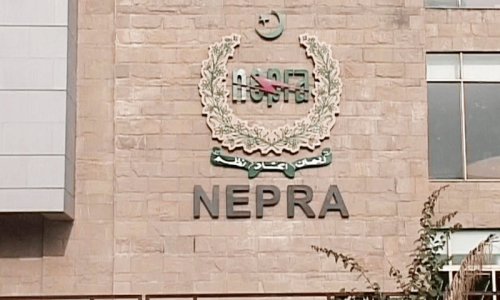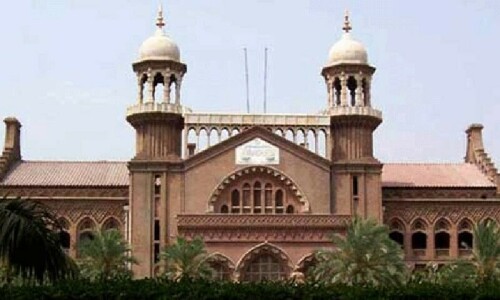ISLAMABAD: Under pressure to meet the Feb 15 deadline of the International Monetary Fund (IMF), the caretaker government on Wednesday allowed another up to 45 per cent increase in the natural gas tariff with effect from Feb 1 to meet revenue requirement of the gas utilities targeted for the current year.
The decision was taken at a meeting of the Economic Coordination Committee (ECC) of the Cabinet presided over by Caretaker Finance Minister Dr Shamshad Akhtar. The meeting made certain adjustments in rates of increase proposed by the Petroleum Division that would be incorporated in the revised summary and taken to the federal cabinet on Friday for formal approval and notification.
“After discussion, the ECC decided that revision of sale price/tariff should be consistent with revenue requirements of the Sui companies,” said an official statement issued by the Ministry of Finance after the ECC meeting.
The Petroleum Division told the ECC that the revised estimated revenue requirements determined by Ogra for the current fiscal year stood at Rs592bn for SNGPL and Rs310bn for SSGCL, thus putting the total revenue requirement at Rs902bn, resulting in an average prescribed price of Rs1,596 per mmBtu.
ECC cuts increase for protected domestic users, passes on impact to industry
Informed sources said the ECC decided to slightly scale down the proposed increase for protected domestic consumers and pass on its impact to other sectors like fertiliser and industry.
The government had set a programme benchmark with the IMF to continue with regular end-user gas price updates in line with revenue and legal requirements and implement the notification for Ogra-determined gas price adjustment by Feb 15 under which it would “seek to reduce large preferential cross-subsidies across industrial and commercial users, and further disincentivise captive gas use”.
As such, the ECC allowed Rs50 per unit increase for protected domestic consumers with less than 0.25 hundred cubic metres (hcm) consumption to Rs170 per mmBtu from the existing Rs121 per unit, up almost 41pc. The Petroleum Division had proposed 65pc (Rs80 per unit) increase for the said category. A similar 40-45pc increase has been allowed for other protected consumer slabs with less than 0.9 hcm consumption and the rates for three categories would be higher by Rs70 to Rs80 per unit instead of Rs100 per unit proposed by the Petroleum Division.
The increase for non-protected residential consumers would increase by up to 27pc with an increase of Rs250 to Rs350 per unit. This would mean the first slab (1hcm) in this category would now pay Rs1,250 per unit instead of Rs1,000.
The second slab (1.5hcm) would pay Rs1,550 per unit instead of Rs1,200 at present. The rates for higher categories would also be increasing by Rs300 per unit with a maximum rate of Rs4,200 per mmBtu for above 4hcm per month.
The finance ministry said the ECC also recommended uniform gas tariffs for fertiliser plants and directed the Competition Commission of Pakistan to investigate the undue increase in urea prices in the recent past and fix the responsibility. ECC also directed the Ministry of Industries to ensure the stability of urea prices in the market.
The rates for bulk domestic and special commercial (Roti Tandoor) would be going up by from Rs2,000 per mmBtu to Rs2,900 unless the cabinet makes some changes. Likewise, a flat rate of Rs700 per mmBtu will be charged to special commercial (Roti Tandoor) category. This rate has remained unchanged since 2015.
The rates for captive power plants both for local and export industries have been increased by about 20pc while feedstock rates for fertiliser are up by 30pc and 11pc for fertiliser production. The revised rates with notification would be shared with the IMF soon after the cabinet meeting.
Sales tax rationalisation
The ECC also approved a proposal from the Federal Board of Revenue (FBR) regarding the “Rationalisation of Criterion of Enhanced Rate of 25pc Sales Tax on Locally Manufactured/ Assembled Vehicles (PCT87.03)”.
Likewise, it also gave “Approval of Share Subscription Agreement (SSA) of National Credit Guarantee Company Ltd (NCGCL),” Karandaz and the Government of Pakistan through the Ministry of Finance.
It also approved a summary of the Finance Division regarding “Approval of Technical Supplementary Grant for Provision of Rupee Cover for Remaining Funds” amounting to Rs7.6bn of the first tranche of $85m credit lines obtained from the World Bank.
Published in Dawn, February 15th, 2024
















































Dear visitor, the comments section is undergoing an overhaul and will return soon.